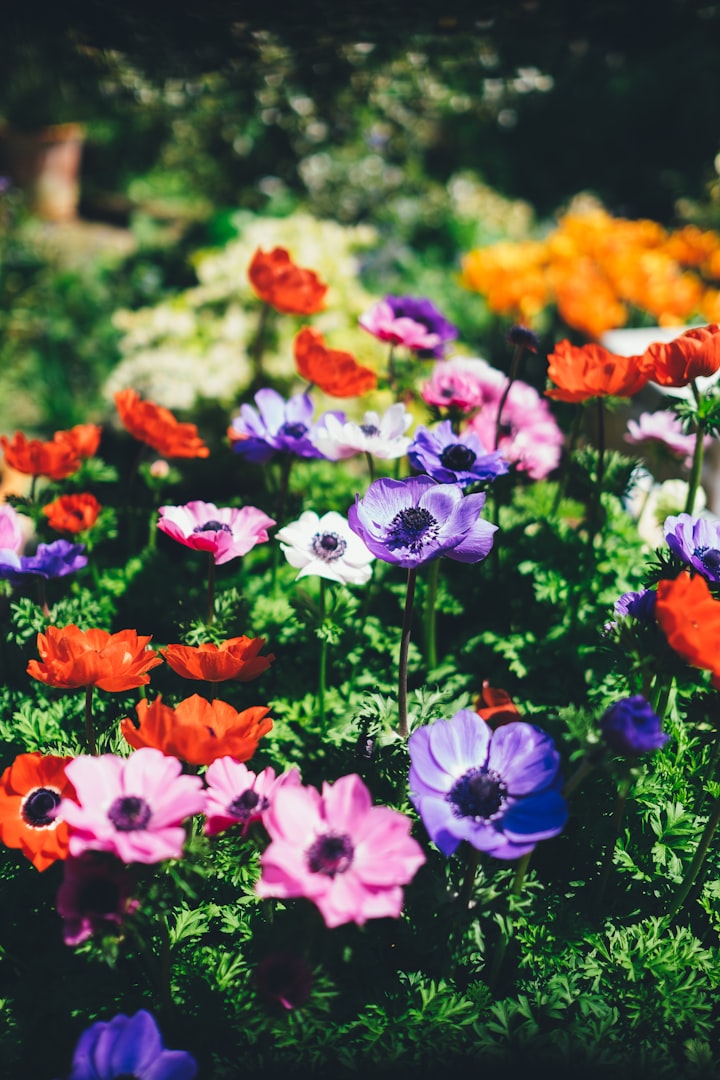6 Health Benefits of Growing a Medicinal Garden
Read now to learn the best health tips!

Growing a medicinal garden is a great way to improve your health and wellbeing. Not only can you enjoy the therapeutic benefits of tending to your own plants, but you can also benefit from the healing properties of the medicinal herbs and plants you cultivate. With a medicinal garden kit, it’s easy to get started and begin reaping the many health benefits that a medicinal garden has to offer. In this blog post, we will explore six of the most powerful health benefits that come from growing your own medicinal garden.
1) Pain relief
One of the most sought-after benefits of growing a medicinal garden is pain relief. Many common herbs and plants grown in a medicinal garden have been known to provide natural relief from a variety of aches and pains. These include herbs like chamomile, lavender, and rosemary, which have been used for centuries to alleviate pain and promote relaxation.
If you're new to gardening and interested in starting a medicinal garden for pain relief, a Garden for beginners kit is a great place to start. This kit will typically include a variety of easy-to-grow herbs and plants, along with instructions on how to care for them.
To get started with pain relief, consider growing herbs like arnica, which is known for its anti-inflammatory properties and ability to ease muscle soreness. Other great options for pain relief include ginger, which can help alleviate joint pain, and turmeric, which has been used for centuries to treat a variety of ailments, including pain and inflammation.
Overall, growing a medicinal garden for pain relief is a great way to naturally alleviate aches and pains without relying on prescription medications. By starting a garden and cultivating your own herbs and plants, you can take control of your health and wellness while also enjoying the many benefits of gardening.
2) Boosts immunity
A well-tended medicinal garden can be a great ally in boosting our immune systems. With the right combination of herbs, spices, and other plants, we can prepare teas, tinctures, and decoctions that help us fight off colds, flu, and other ailments. Some of the most popular immune-boosting plants to grow include echinacea, elderberry, garlic, and astragalus. Starting a garden can be intimidating for beginners, but fear not! With the right Garden Kit and some basic guidance, anyone can grow a thriving medicinal garden and reap the health benefits. Just remember to research each plant's requirements and properties carefully, and always consult with a qualified healthcare practitioner before trying any new herbal remedy.
3) Aids in digestion
One of the many benefits of starting a medicinal garden is the aid it provides for digestion. Many of the herbs and plants grown in a medicinal garden have been used for centuries to alleviate digestive issues such as bloating, constipation, and indigestion.
For gardeners who are just starting out, some beginner-friendly plants that can aid in digestion include peppermint, ginger, and chamomile. Peppermint contains menthol, which relaxes the muscles in the digestive tract and can ease cramping and bloating. Ginger is a natural anti-inflammatory and can reduce nausea and indigestion. Chamomile can also ease stomach cramps and promote digestion.
These herbs can be used fresh or dried to make teas or added to meals for added flavor and digestive benefits. Not only does a medicinal garden provide fresh, healthy options for those with digestive issues, but it can also be a cost-effective alternative to buying over-the-counter medications.
Overall, starting a medicinal garden can be a great way to aid in digestion and promote overall gut health. As always, it's important to consult with a healthcare professional before trying any new herbs or plants for medicinal purposes. Happy gardening!
4) Reduces stress and anxiety
One of the key benefits of growing a medicinal garden is its ability to reduce stress and anxiety. Life can be hectic and stressful, and gardening provides an opportunity to unwind and disconnect from the world. Spending time in nature has been proven to have a calming effect on the mind and body, and gardening provides an added benefit of allowing you to grow your own natural remedies.
If you're new to gardening, there are many plants that are easy to grow and can help reduce stress and anxiety. Chamomile, for example, is a gentle sedative that can be made into a soothing tea. Lavender has a calming effect and can be used to make sachets or essential oils. Lemon balm is another herb that can help calm the nerves and promote relaxation.
Even if you're a garden for beginners, you can still reap the benefits of a medicinal garden. Planting and tending to your garden can be a therapeutic activity that helps reduce stress and promote relaxation. And, once your plants are ready to harvest, you can use them to make teas, tinctures, or other natural remedies that can help ease stress and anxiety.
5) Soothes respiratory problems
If you're someone who struggles with respiratory problems, a medicinal garden can be a wonderful way to help soothe your symptoms. Many plants contain natural compounds that are beneficial for the respiratory system, helping to ease coughs and clear congestion.
One such plant is Eucalyptus, which is commonly used for respiratory problems like bronchitis and asthma. Its leaves contain eucalyptol, which can help to loosen phlegm and make it easier to breathe. Eucalyptus can also be used as an inhalant, allowing the essential oils to directly reach the respiratory system.
Another great plant for respiratory problems is mullein, which has been used for centuries to treat respiratory ailments. Mullein contains compounds that are known to soothe inflammation in the respiratory tract and help to ease coughs. You can make a tea with the leaves and flowers of the plant, or use it in a steam inhalation.
Thyme is another great option for respiratory issues. It contains compounds that are anti-inflammatory and antibacterial, helping to soothe coughs and ease congestion. Thyme can be used in a tea or added to foods like soups and stews for an extra boost of respiratory support.
Whether you're dealing with a chronic respiratory condition or just struggling with a cold, growing a medicinal garden can help to soothe your symptoms and support your overall health and wellness. Consider adding these respiratory-friendly plants to your garden to enjoy their many benefits.
6) Promotes sleep
In today's fast-paced world, where we are always connected to technology and bombarded with endless stimuli, it can be challenging to switch off and get a good night's sleep. The good news is that growing a medicinal garden can promote restful sleep.
One of the key benefits of a medicinal garden is that it contains plants that have natural sedative properties. These plants have been used for centuries to aid in relaxation and promote restful sleep. Examples of such plants include chamomile, lavender, valerian root, and passionflower.
Chamomile is one of the most popular herbs for promoting sleep and relaxation. It contains a compound called apigenin, which binds to specific receptors in the brain and reduces anxiety, promoting restful sleep.
Lavender is another popular plant for promoting sleep. It has been shown to reduce heart rate, blood pressure, and respiratory rate, promoting a relaxed state conducive to sleep. The fragrance of lavender has also been found to promote a sense of calm and reduce anxiety.
Valerian root has been used for centuries to treat sleep disorders. It contains a compound called valerenic acid, which has been shown to increase the levels of GABA (gamma-aminobutyric acid) in the brain. GABA is a neurotransmitter that has a calming effect on the brain, promoting restful sleep.
Passionflower is another plant that has been shown to promote sleep. It contains a compound called harmine, which acts as a natural sedative, reducing anxiety and promoting restful sleep.
If you want to see my number one way on creating a medicinal garden easy, click here now





Comments
There are no comments for this story
Be the first to respond and start the conversation.